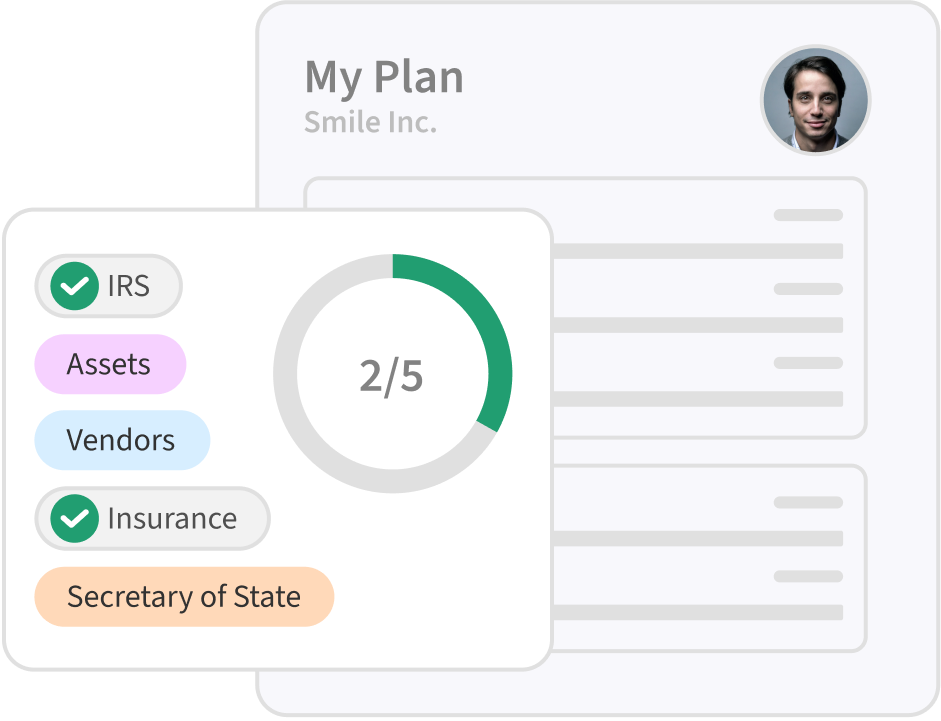Shutting down a business can be an emotional and challenging decision. For founders and business owners, it can be even more complicated when long-term lease obligations remain. Whether you're operating out of an office, warehouse, or retail space, your lease might extend well beyond the life of the business itself. However, there are options available that can help you manage these liabilities effectively, without jeopardizing your financial future or personal reputation.
This guide provides a practical approach to navigating the complex issue of long-term leases during business closure, while also offering options such as subleasing, assignment, and negotiation. The goal is to help you explore various alternatives and identify the best course of action for winding down your business.
Understanding Your Lease Commitments
Before making any decisions regarding your lease, it’s important to fully understand the terms of your agreement. A thorough review of your lease can provide insight into your remaining obligations and offer a roadmap for your next steps.
Key Clauses to Look for:
Early Termination Clause – Some leases allow for early termination under specific conditions, such as the inability to meet financial obligations or business closure. Familiarizing yourself with this clause can be pivotal if you need to terminate the lease before its end date.
Assignment and Subleasing Provisions – Many commercial leases provide options to assign the lease to another business or sublease the space to a third party. These provisions can be vital in reducing your liabilities and allowing another entity to take over your obligations.
Security Deposit and Personal Guarantees – Check whether any personal guarantees or security deposits are tied to the lease. If personal guarantees are in place, the financial risk may extend beyond the company’s dissolution.
Penalties for Breaking the Lease Early – Understand any penalties or fees associated with ending the lease before the agreed term ends. These costs can add up quickly, so it’s important to account for them as part of your closure planning.
Step 1: Early Communication Often Leads to Better Outcomes
It is important to let your landlord know as soon as you’ve decided to close your business, ie. before payments are missed or the space goes dark. A transparent, proactive conversation can open doors to solutions that protect both sides, from negotiated terminations to subleasing opportunities.
Most landlords prefer collaboration over surprise vacancies. By engaging early and explaining your situation clearly, you give them time to plan for a new tenant and, in turn, increase the likelihood that they’ll work with you toward a fair resolution.
Step 2: Explore Your Options
When faced with an ongoing lease during business closure, there are several options to consider:
Subleasing
If your lease agreement allows it, subleasing can be an excellent way to offset some or all of your rental obligations. You would retain responsibility for the lease, but another party would occupy the space and pay rent to you. This can help minimize financial strain during the closure process. However, you’ll still be on the hook for the lease terms and must ensure the subtenant adheres to them.
Lease Assignment
A lease assignment involves transferring the lease to another business, which takes over your obligations. This is often a desirable option for both parties if the new tenant is well-suited for the space and can meet the landlord’s requirements. This is a more permanent solution compared to subleasing, as it transfers all responsibility for the lease to the assignee.
Negotiated Early Termination
If a sublease or lease assignment is not viable, negotiating an early termination with your landlord may be the best solution. This could involve a one-time buyout payment to release you from further obligations. While this may mean an upfront cost, it can often prevent larger liabilities later.
Default and Mitigation
If an agreement cannot be reached with your landlord, the next step might involve defaulting on the lease. However, landlords are generally required to make reasonable efforts to re-rent the space in order to mitigate any losses. It’s important to understand that this may still result in penalties or legal complications, so it should be a last resort.
Step 3: Understand the Financial and Legal Implications
Each option for addressing your lease, whether subleasing, assignment, early termination, or default, carries its own financial and legal consequences. Understanding these risks ahead of time helps you make informed decisions and avoid unnecessary surprises later in the shutdown process.
Breaking a lease without an agreement can result in costly penalties, and failing to meet the terms can impact your personal and business credit. Before taking any action, review your lease carefully and, when possible, consult with legal and financial professionals to assess your exposure.
Potential Consequences:
Penalties and Additional Rent Liability – Many leases include clauses that impose penalties for early termination or failure to meet payment obligations. Some leases may require you to continue paying rent until the space is re-rented, even if you're no longer using it.
Personal Guarantees – If you personally guaranteed the lease, your personal assets could be at risk. It’s important to evaluate the full extent of your personal liability and consult with legal professionals to protect yourself.
Impact on Future Ventures – Mishandling lease obligations during a closure can affect your professional reputation and could create complications if you wish to start a new business in the future. Managing the process responsibly by communicating openly with your landlord, documenting agreements, and following proper notice procedures shows professionalism and helps protect your credibility as a founder.
If you’re unsure when to send notice or how to document landlord communication, SimpleClosure can guide you through the administrative side of this process. Our platform helps business owners track deadlines, organize notices, and document communications to ensure steps are completed properly as part of your personalized shutdown plan.
Step 4: Incorporate Lease Obligations Into the Dissolution Plan
As you develop your shutdown plan, it’s critical to integrate your lease obligations into the overall timeline and budget. Consult with your legal and financial advisors to ensure that all payments, settlements, or potential penalties are properly accounted for.
Document any lease modifications or agreements in writing to avoid misunderstandings down the line. Additionally, notify your registered agent or legal counsel if any outstanding lease issues could delay your formal dissolution filings.
How SimpleClosure Helps
At SimpleClosure, we help business owners manage the administrative and compliance aspects of lease obligations during shutdown.Our team helps track notice requirements, renewal dates, and financial liabilities, helping you plan your business wind-down with clarity. We also coordinate with your legal and real estate advisors to ensure that lease-related issues are resolved before the business is formally dissolved.
While long-term leases can feel like a significant burden when closing a business, taking proactive steps and exploring available options can provide workable solutions. Communicating with your landlord early, understanding your obligations, and negotiating a solution that minimizes liabilities are key to a smooth closure process. If you’re preparing to close your business and want a clear, organized path forward, SimpleClosure can help you do it efficiently and with confidence.
Note: This guide is for general informational purposes and does not constitute legal advice. Every lease is unique, and you should consult an attorney before taking any action that affects your legal or financial obligations. SimpleClosure is not a law firm and does not provide legal advice.

